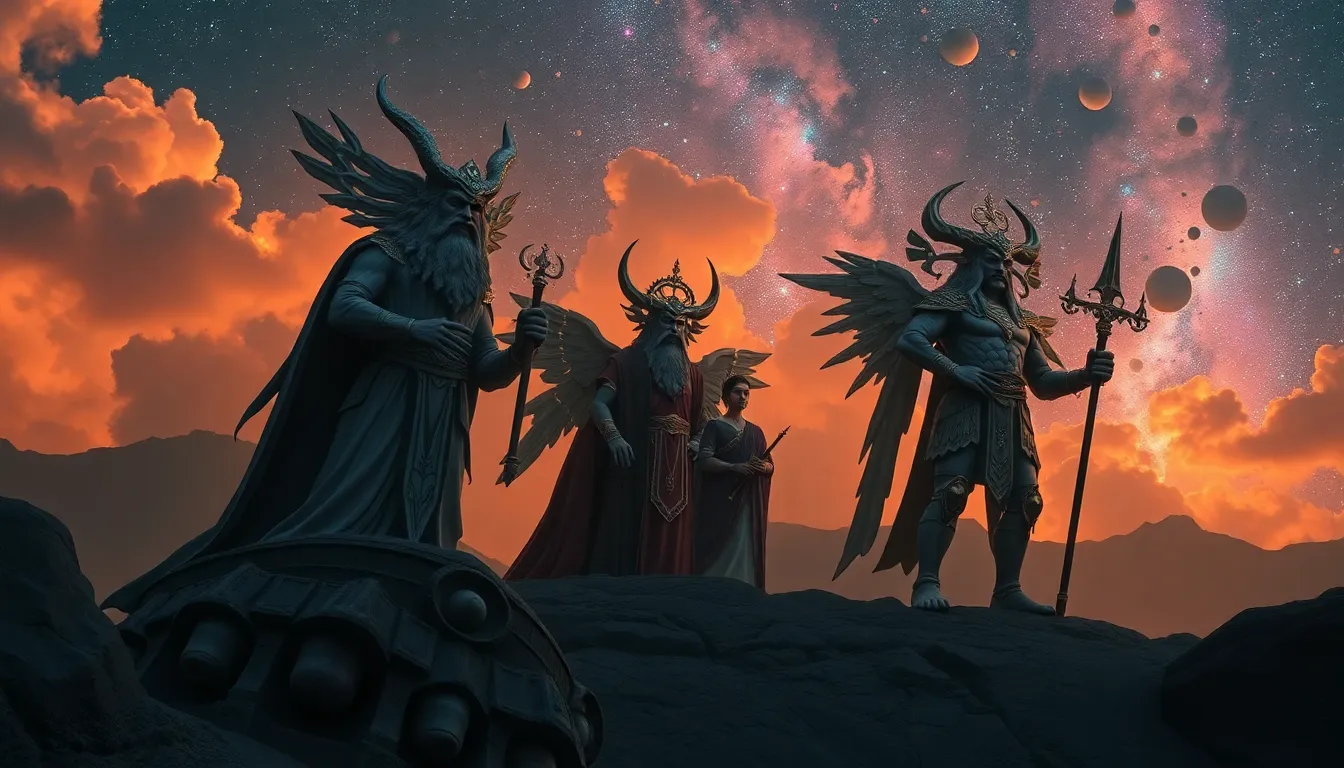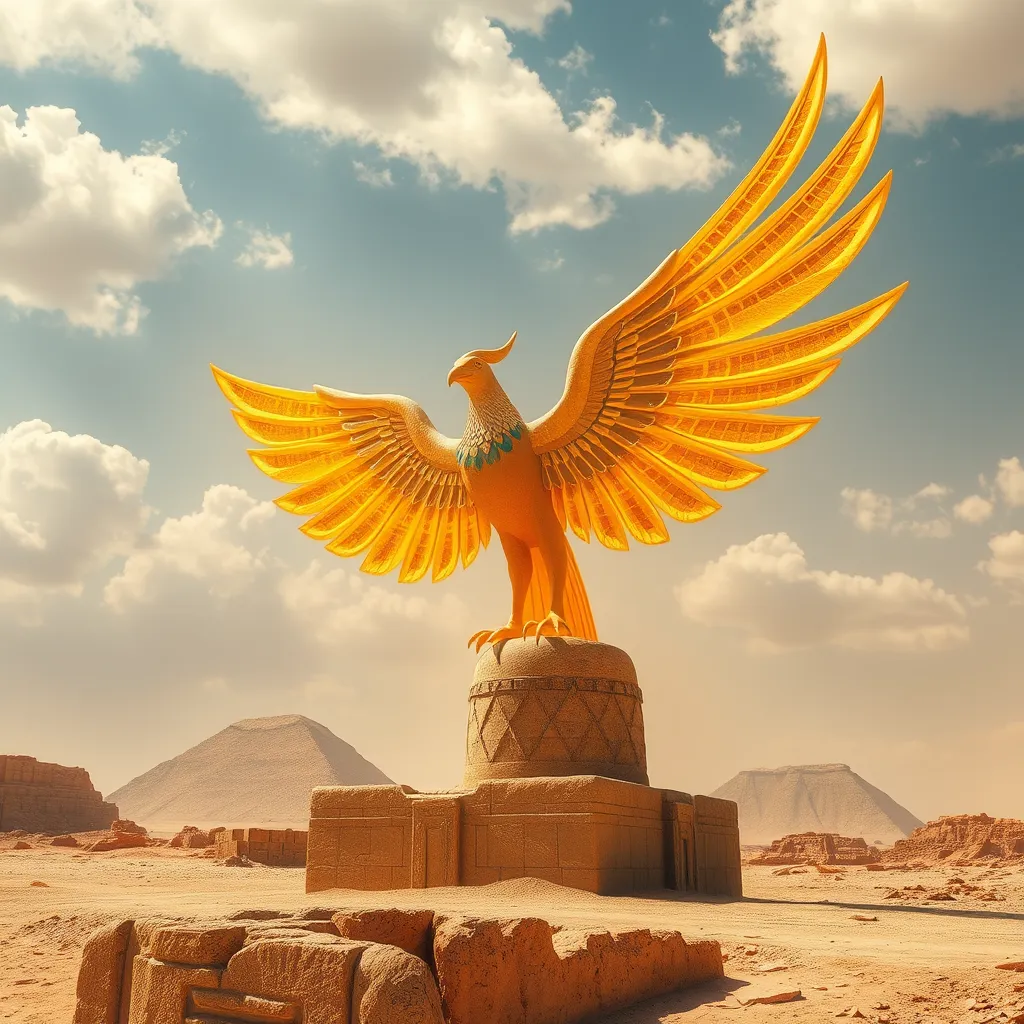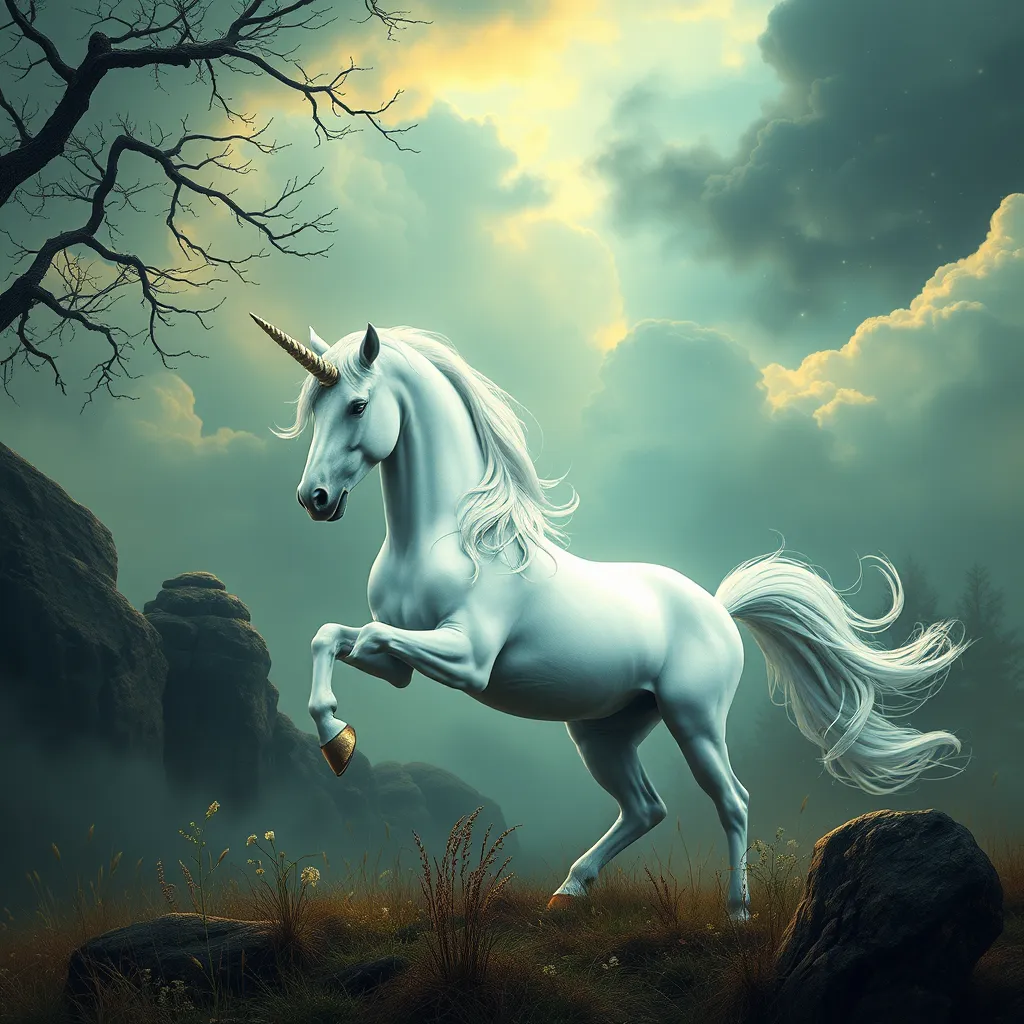The Guardians of the Cosmos: Cosmic Watchers in Ancient Myth
I. Introduction
Throughout history, various cultures have expressed a profound reverence for the cosmos, often personifying celestial bodies as divine figures who watch over humanity. These cosmic watchers serve as guardians, protectors, and guides, playing crucial roles in the spiritual and mythological landscapes of ancient societies. Mythology not only narrates the beliefs and values of a culture but also provides insight into how these civilizations viewed their place in the universe.
This article will explore the concept of cosmic watchers across different mythologies, focusing on their characteristics, roles, and the significance they hold in their respective cultures. By examining the perspectives of Mesopotamian, Egyptian, Greek, Roman, and Indigenous mythologies, we can better appreciate the universal themes of observation, protection, and the quest for understanding the cosmos.
II. Defining Cosmic Watchers
Cosmic watchers are often depicted as celestial beings or deities who oversee the universe and its inhabitants. Their characteristics and roles can vary significantly across different cultures, but common elements include:
- Observation: Cosmic watchers are often portrayed as vigilant figures who observe human actions and the natural order of the universe.
- Protection: They serve as guardians who ensure the balance and harmony of the cosmos, protecting humanity from chaos.
- Guidance: Many cultures believe these watchers provide wisdom and guidance, often through signs or omens.
The symbolism associated with cosmic watchers often reflects the duality of their existence. They embody both a protective element and a role as passive observers, reminding humanity of the larger forces at play in the universe. This duality reinforces the connection between the divine and the mortal, highlighting the complexities of existence.
III. The Watchers in Mesopotamian Mythology
In Mesopotamian mythology, the Anunnaki are among the most prominent cosmic overseers. These deities were believed to descend from the heavens and were associated with the stars and celestial bodies. Their significance in the creation narratives is profound, as they were thought to have a hand in shaping the earth and establishing order.
The Anunnaki were not only seen as creators but also as judges who observed human behavior, influencing fate and fortune. The stars were viewed as manifestations of these deities, with each celestial body representing different gods and their respective powers. Myths detailing their interactions with humanity often emphasize themes of divine guidance and the moral implications of human actions.
IV. Egyptian Deities as Cosmic Guardians
In ancient Egypt, cosmic guardians played a pivotal role in maintaining the order of the universe. Deities such as Ra, Osiris, and Thoth were central to Egyptian cosmology:
- Ra: The sun god, Ra was seen as the primary force of creation, traversing the sky and ensuring the cycle of day and night.
- Osiris: As the god of the afterlife, Osiris represented resurrection and eternal life, overseeing the souls of the deceased.
- Thoth: The god of wisdom and writing, Thoth was responsible for knowledge and the recording of human deeds.
The concept of Ma’at, representing truth, balance, and cosmic order, was integral to Egyptian belief. The narratives surrounding these deities illustrate their guardianship over both the living and the dead, emphasizing the interconnectedness of life, death, and the universe.
V. Greek and Roman Perspectives on Cosmic Watchers
Greek and Roman mythologies also feature cosmic watchers, with the Titans and Olympian gods playing significant roles. The Titans, such as Cronus and Rhea, represent the primordial forces of the universe, while the Olympian gods, led by Zeus, govern the cosmos and maintain order.
The myths often highlight the interaction between gods and humans, showcasing the influence of divine beings in mortal affairs. For example:
- The Titan Atlas: Condemned to hold up the heavens, Atlas embodies the burden of cosmic observation and protection.
- Athena: The goddess of wisdom, she frequently intervenes in human matters, guiding heroes and imparting knowledge.
These narratives reflect the ancient Greeks’ understanding of fate, free will, and the delicate balance maintained by divine powers in the cosmos.
VI. Cosmic Guardians in Indigenous Mythologies
Indigenous cultures around the world have their own interpretations of cosmic watchers, often deeply intertwined with nature and the cosmos:
- Native American Beliefs: Many tribes believe in star beings or sky watchers who guide and protect them. These entities are often associated with constellations and celestial events.
- African Cosmologies: Ancestral spirits play a crucial role, with many tribes believing that these spirits watch over the living, providing wisdom and guidance.
Celestial navigation is of great significance in indigenous cultures, as the stars are often used for guidance in travel, rituals, and storytelling, reinforcing the connection between the cosmos and daily life.
VII. The Legacy of Cosmic Watchers in Modern Culture
The influence of cosmic watchers in ancient myths continues to resonate in modern culture. These themes have permeated contemporary storytelling across various mediums:
- Literature: Many authors draw inspiration from ancient myths, incorporating cosmic themes into their narratives, such as in fantasy genres.
- Film: Movies often explore cosmic themes, showcasing the struggle between divine forces and humanity, as seen in franchises like Marvel and DC.
- Art: Artists frequently depict celestial motifs, reflecting humanity’s enduring fascination with the cosmos and its mysteries.
The continued interest in the cosmos and mythology highlights our innate curiosity about existence and our place within the universe.
VIII. Conclusion
The significance of cosmic watchers in ancient mythologies is profound, reflecting humanity’s quest for understanding and connection with the universe. These guardians symbolize the interplay between observation and protection, providing insights into the values and beliefs of ancient cultures. The enduring nature of these myths speaks to a universal desire to comprehend the cosmos and our role within it.
As we explore the intersection of mythology and our understanding of the cosmos, we are reminded of the timeless narratives that continue to inspire and shape our world today. The guardians of the cosmos remain not only figures of ancient lore but also symbols of our ongoing journey to seek knowledge and meaning in the vastness of existence.



